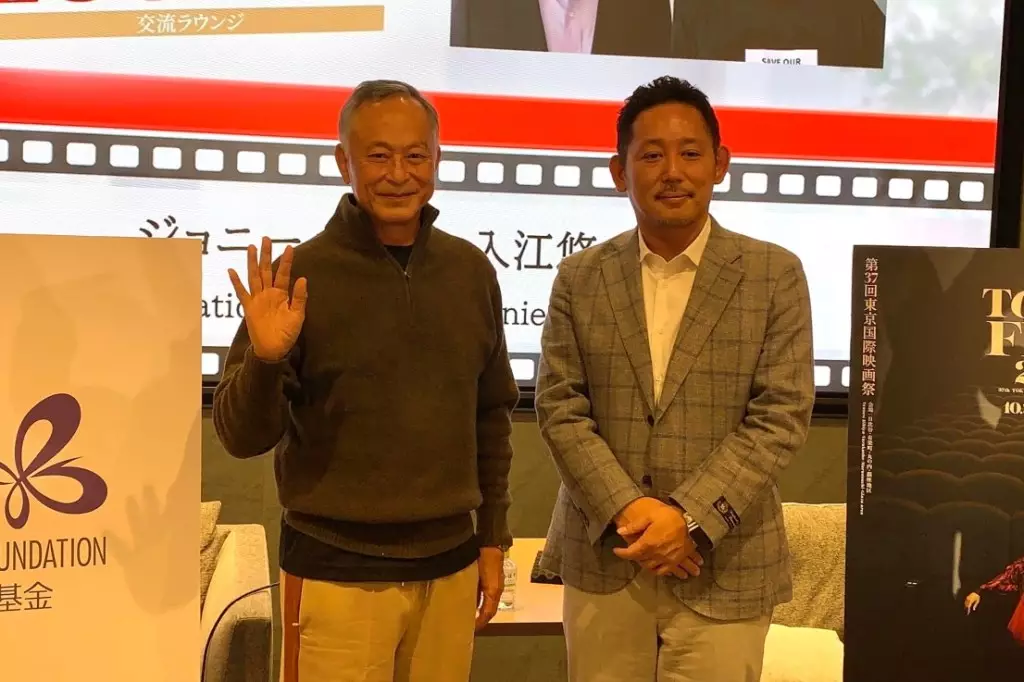The cinematic world has long been captivated by Johnnie To, a luminary in Hong Kong filmmaking whose career spans several decades and genres. Recently, at the Tokyo International Film Festival (TIFF), To engaged in an enlightening conversation with Japanese director Yu Irie, delving into the nuances of his unique creative process and reflecting on the current landscape of Hong Kong’s film industry. Through his candid remarks, To not only illuminated his artistic vision but also shed light on the changing tides in Hong Kong’s cinematic freedom.
To’s shooting style stands out for its improvisational nature. Unlike many filmmakers who meticulously craft screenplays before production, he embraces a more spontaneous approach. “For me, creating a proper screenplay before you start shooting means that the movie is already completed. I wouldn’t be able to do my best shoot,” he stated. This philosophy results in a fluid filmmaking process where the outcome is shaped during actual production, allowing for creative breakthroughs that a rigid script might inhibit. To’s films like *Exiled* epitomize this free-wheeling style, showcasing a visceral, dynamic storytelling that resonates with audiences. His belief that the essence of the film evolves in the moment, rather than being confined to pre-determined dialogues and scenes, is a hallmark of his work.
Part of To’s unconventional methodology involves his relationship with actors. He noted that about one-third of the way into a film, actors begin to grasp the underlying spirit of the movie. This intuitive understanding fosters a collaborative environment, but To humorously acknowledged, “It’s probably not the best style of filmmaking. I wouldn’t recommend it to young filmmakers.” His candid self-assessment suggests an awareness of the risk associated with such an approach, which may not provide the structure and guidance that emerging talents require.
In a testament to his ability to juggle multiple projects, To revealed how he often directs two or three films simultaneously. This eclectic mix of projects allows him to oscillate between commercial and personal narratives, maintaining a balance that fuels his creativity. For example, during the production of *Sparrow*, which featured in the Berlin Film Festival, To spoke of the financial struggles that necessitated shooting additional films to secure funding. His adaptability and resourcefulness are impressive, yet they underscore the unpredictable nature of independent filmmaking.
However, as To navigates the intricate tapestry of his filmmaking, he can’t ignore the darker undercurrents affecting Hong Kong’s film industry. The increasing censorship imposed in recent years weighs heavily on filmmakers, which To articulated during the conversation. “When it comes to expression and execution, there have been some regulations introduced in Hong Kong,” he remarked, alluding to the barriers imposed by authorities that stifle creative expression. For instance, films at Hong Kong’s Fresh Wave International Short Film Festival faced censorship issues, with essential scenes muted or blacked out before screening, reflecting an alarming trend towards artistic repression.
To’s establishment of the Fresh Wave International Short Film Festival serves as a beacon for emerging filmmakers; however, he emphasizes the need for budding talents to be astute about the current climate. “If you’re trying to create a film, you have to be ready to understand how the censorship is working,” he cautioned. This pragmatic stance encourages filmmakers to adapt while remaining true to their artistic intentions.
Despite the limiting atmosphere in Hong Kong, To reassured younger filmmakers that opportunities exist beyond its borders. “If you can’t create the film in Hong Kong, make it in Singapore, Malaysia, Taiwan, or even here in Japan,” he advised. His words sought to inspire a new generation of filmmakers to embrace their creativity regardless of regional constraints. This resilience and determination are crucial, as it empowers talents to reimagine their paths in a rapidly transforming cultural landscape.
Moreover, To has underscored the vital need for increased investment in the Hong Kong film industry. He claimed that government and private sector support could pave new avenues for aspiring filmmakers. His upcoming milestone of turning 70 brings a poignant realization of the urgency for change; as he declared, “The situation has changed, the times have changed.” His commitment to nurturing the next wave of filmmakers will undoubtedly leave an enduring legacy, provided sufficient support emerges to reinforce their endeavors.
The interview with Johnnie To at TIFF not only illuminated his distinctive filmmaking approach but also unfolded significant concerns about the changing realities of the film industry in Hong Kong. As he reflects on his experiences, it becomes clear that while challenges persist, the spirit of innovation and perseverance among filmmakers must continue to thrive, ensuring that the rich cinematic tradition of Hong Kong endures.

